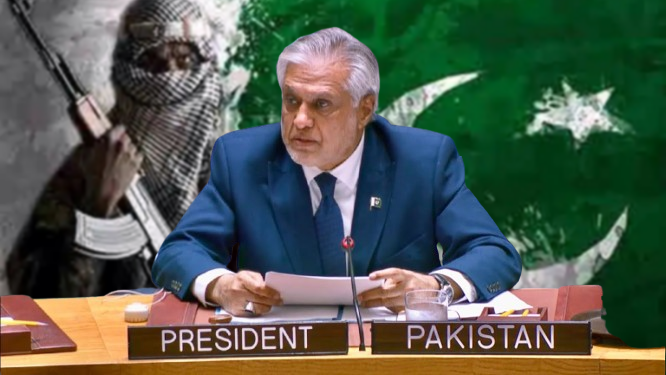
- The adoption of a resolution by a state-sponsor of terrorism is exactly why many believe that the UN has lost its relevance due to its selective approach to global issues.
- The world, along with the United Nations, must understand that diplomacy cannot be entertained when it comes to matters of sovereignty.
- A clear question must be asked of these countries: What are their exact intentions regarding state-sponsored terrorism?
The United Nations Security Council has adopted a Pakistan-sponsored resolution titled “Strengthening Mechanisms for Peaceful Settlement of Disputes.” This comes during Pakistan’s presidency of the United Nations Security Council. Pakistan was the brainchild of this move and has hailed it as a diplomatic success.
This development follows the recent India-Pakistan escalation, where Pakistan once again committed state-sponsored terrorism against India.
This is not the first time the United Nations has shown its double standards. On one hand, it speaks out strongly against terrorism, calls for global stability, and designates global terrorists. On the other hand, it entertains and legitimises the initiatives of a country that is widely regarded as the epicentre of terrorism.
This is exactly why many believe that the United Nations has lost its relevance because of its selective approach to global issues. India has long maintained that there should be no doubt about the Pakistani government’s involvement with terrorist organisations. Pakistan has consistently used its non-state actors as instruments to create unrest in India.
Pakistan harbours terrorists, and this is not the first instance. It has a long history of using terrorism as a tool against India, and the world has witnessed Pakistan’s unwillingness to learn from its past.
Furthermore, the entire Kashmir issue has been a direct result of Pakistan’s actions. The only issue to be resolved with Pakistan is the illegal occupation of Pakistan-occupied Kashmir. The world, along with the United Nations, must understand that diplomacy cannot be entertained when it comes to matters of sovereignty. Diplomacy applies to differences, not to core national integrity.
Not just the United Nations, but even other parts of the world have been turning a blind eye to India’s concerns. On one hand, U.S. President Trump calls Pakistan a “great friend” and a “talented country,” while on the other, UK Foreign Minister David Lammy chose to visit Pakistan before India, in the aftermath of the Pahalgam horror.
These are the same countries that consider themselves guardians of global anti-terror operations, yet they continue to maintain close ties with a country that is widely regarded as the epicentre of terrorism.
There is a clear question that must be asked of these countries: What exactly are their intentions? What is their stance? And how do they view their relationship with India?
Do they consider India merely a friend, or do they truly see India as a strategic partner? Because a strategic partner does not play double standards. The very essence of a strategic partnership lies in consistency—of decisions, of approach, and of principle. Countries like the U.S. and the UK need to make a clear choice and decide where they truly stand.
Aayush Pal is a freelance writer on contemporary geopolitical developments. The views expressed in his work are entirely his own.
